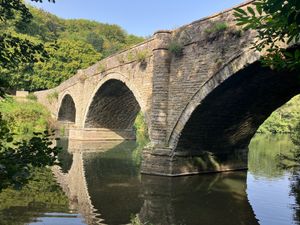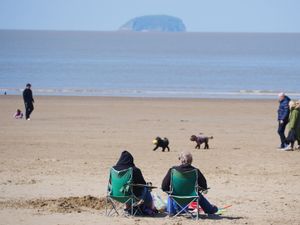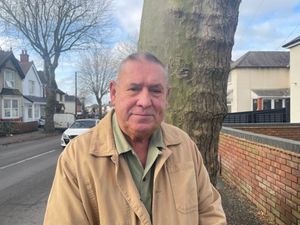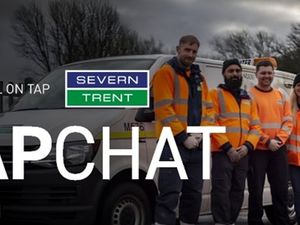Meet the man who is helping to deliver one of the UK’s most ambitious projects to clean up our rivers
Standing on the picturesque banks of Ludlow’s River Teme, it’s not difficult to see why Wilfred Denga's work to improve the quality of the local waterway is the single proudest moment of his career.

As a business lead for Severn Trent, Wilfred is at the helm of one of the UK’s most ambitious projects to improve river health – helping move two stretches of waterways, the River Teme and the River Leam in Warwickshire, towards bathing quality by 2025.
This £78m investment will see improvements to the local wastewater treatment works and overflows, as well as running the largest river monitoring programme the industry has seen, providing valuable insights and data on the quality of the water, to make the improvements needed.
As part of the project, pioneering technology will be used to help clean wastewater – the first time this has been done in the UK. He says it could revolutionise the treatment process.
Wilfred said: “I have been with Severn Trent for 15 years, but without a doubt, my work on this bathing river project is the single proudest moment of my entire career because it will deliver a tangible output that people can see and enjoy.

“This is such an exciting project and it’s rewarding to work in a community that is really committed to good river quality. I’ve been fortunate to meet a lot of people in Ludlow and be able to share my vision – they really see the benefits.
“With this local area being a great tourist and visitor attraction, there’s a real desire to maintain that status and be a place where people can come and enjoy the local environment. So, it’s important that we, as a business, do all we can to help that happen for future generations.”
Severn Trent has made a commitment as part of its industry leading Get River Positive scheme, to ensure its storm overflows do no harm to rivers. The company says it is making huge investments in improving its infrastructure, with £11.5m earmarked for the upgrade of six sewage works in Shropshire. It is also looking at new technologies to find innovative ways to help keep rivers healthy.
As part of its bathing rivers work, ozone technology will be implemented at the treatment works in Ludlow, with designs now in the final stages. This marks the first time the technology has been trialled at a sewage plant in the UK.

Ozone is already being used in water treatment, but Severn Trent will be the first to trial it on waste water to see its effects on wider pollution, such as pharmaceuticals that are being flushed or poured down sinks. It also has the potential to tackle antibiotic-resistant bacteria.
“This would be an additional treatment process at the end of our normal sewage treatment works,” said Wilfred. “While our current process ensures that nutrients and pathogens are reduced, it doesn’t take out all the bacteria and pharmaceutical chemicals that don’t easily go away.
“There are many ways to treat waste water, such as ultra-violet light disinfection, but that relies on clear fluid and therefore needs significant filtering first before moving onto the disinfection stage. “Ozone doesn’t need as much pre-treatment, to put it simply it’s a bubbling, reactive gas that when put into the water will react with most things within that flow, so the end result should be a cleaner effluent that is discharged back into the river.
“If successful, Ludlow will be at the forefront of a new innovation which means there will be benefits to the River Teme that don’t exist anywhere else.”
Wilfred expects to start trialling the ozone technology next year, with the whole Bathing Rivers project completed in 2025 – marking a momentous moment in Wilfred’s career.
“Having a family makes this personal for me,” he added. “One of the things we talk about when visiting the park at the weekend is ‘how can we keep our rivers healthy’.
“And I’m not alone in being passionate about improving the health of rivers. I look around and see the same desire in my colleagues at Severn Trent, to find new ways to deliver better results and they work day-in and day-out to get us to where we want, and need, to be.”
Wilfred added that working with others is going to be crucial for success. “We are also working with farmers and veterinary practices to identify how we can support them in reducing river water quality impact from livestock. No-one can do this alone, we need to encourage and support each other’s contributions because it is going to be a team effort with all industries and communities to make a difference.
“I think all of us are driven by the ambition of improving processes so rivers can be healthy and remain that way for future generations and the better work we do now, sows the seeds for the future.”





